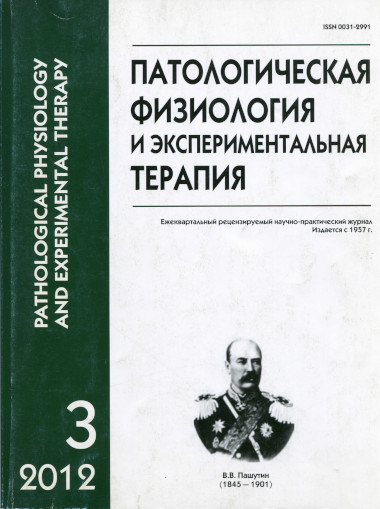Deposition of von Willebrand factor in human endothelial cells HUVEC in the endoplasmic reticulum stress induced by an excess of homocysteine in vitro
Abstract
Von Willebrand factor (vWF) is an adhesive glycoprotein synthesized and secreted by endothelial cells and megakaryocytes. Violation of vWF secretion by endothelial cells is a characteristic feature of endothelial dysfunction in hyperhomocysteinemia. In our study we examined to clarify the concentration-dependent effect of homocysteine (Hcy) on the expression of vWF. Our studies have shown that homocysteine excess induces changes in the intracellular deposition of von Willebrand factor in cultured human endothelial cells in vitro. Primary cultures of human umbilical vein endothelial cells (HUVEC) were incubated with the various concentrations of D,L-homocysteine (0.025 — 5 mM/L). Homocysteine at a concentration of 0.025 and 0.25 mM / L after 18 h incubation caused an increase in the intracellular fraction of vWF in HUVEC cells. High concentrations of homocysteine induced a dose-dependent decrease in the intracellular fraction of vWF. These dose-dependent variations may indicate the modulation by homocysteine of different mechanisms of the deposition, the constitutive secretion and the degradation of vWF in human endothelial cells. We proposed that Endoplasmic reticulum stress, in HUVEC cells by the action of an excess of homocysteine associated with increased intracellular levels of vWF at a relatively low concentration of the inducer. We found decline in intracellular vWF at the same duration but higher concentrations of inducer, which may be due to the ER-associated protein degradation.






